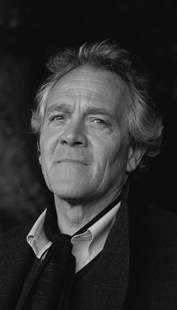


HENRY PORTER
JOURNALIST AND AUTHOR
ABSTRACT
First of all, I want to pay tribute to the British Museum. It is truly a world-class institution, and we must not forget that it opens its doors for free to anyone who wants to visit, with one of the great museum directors of all time currently in charge. Britain can take pride in the way it has cared for the Parthenon Marbles at the British Museum. But now it is time for the British to consider whether the continued presence of the sculptures is not, partially at least, a rather colonial act. The sculptures are more than a great work of art, more even than an early high point of European civilisation: they are, in a sense, a piece of foreign territory. It may be stretching a point to say that their continued presence in Britain is like a form of occupation, but today there is a sense of the illegitimacy of their presence in the BM. The British must be asked how they would feel if the crucial stones of Stonehenge were held in France, or the monuments of Westminster Abbey were in Belgium. We have to realise that the Parthenon Marbles are a fundamental part of European culture, as well as of Greek civilisation, and that there is a powerful case for making the Parthenon as complete as possible. The argument about ownership is important, because the British will always answer appeals to restore the Marbles to Greece by saying that they are no longer a Greek possession – just as the Rock of Gibraltar is not a Spanish possession. There is firstly a cultural argument for restoration, but the ownership question must be tackled in order to persuade the British that there is not even a legal case for their continued presence.
CV
Henry Porter is the author of seven novels. His novel about the fall of the Berlin Wall, Brandenburg, won the Ian Fleming Steel Dagger award in 2005 and, with German finance, is currently being made into a feature film. He is the London editor of Vanity Fair and a commentator for the Observer, often covering the attack on civil liberties in America and Britain. He has debated both Tony Blair and David Cameron on the subject of the loss of civil liberties in Britain and in 2009 was the joint chairman of the Convention of Modern Liberties, a large conference in London with 110 speakers.
Having studied history of art, he is now a keen painter. He also obsessively visits galleries and churches and likes to be able to identify the flowers and birds he comes across on walks in his two favourite spots in the world - the French Pyrenees and Scottish Highlands. He lives in London.